The Stralau peninsula was an ideal location for small and large shipyards alike. Three of the larger companies became well-known: The “Stern” Spree-Havel steam navigation society, founded in 1888, took over a small shipping company in what was then Dorfstraße in 1889. The shipping company and the shipyard worked together until 1931. Its successor was the Stern und Kreisschiffahrt GmbH, which operated under the name “Weiße Flotte” in the GDR. In 1892, Wilhelm Deutsch purchased a shipyard in Tunnelstraße and built rowboats there. One of the most well-known boatyards in Stralau was the Hansa-Werft at Tunnelstraße 41/42, founded in 1911 by the Geppert brothers. The Hansa-Werft moved to Stralau in 1925 and specialized in yacht construction. The shipyard exists to this day.
From very early on, people sailed and rowed in the waters surrounding Stralau. In 1835 in the local pub “Alte Taverne” in what was then Dorfstraße (today Alt-Stralau 25), a group of Berlin residents founded the oldest sailing club in Germany, the Tavernengesellschaft (tavern society). In 1891 the Fraternitas sailing club was founded, the first such club for Germany’s working class. Already in 1876, young businessmen had founded the Berliner Ruderverein (Berlin rowing club) in Stralau. In 1901 the Märkischer Ruderverein, another local rowing club, came into being.
There were also working-class clubs in Stralau whose names said it all, such as the rowing association Vorwärts (forward), founded in 1892, and the Freiheit (freedom) rowing club, founded in 1902. In the face of heavy opposition from many men, the Märkischer Ruderverein introduced a women’s division in 1908/09. In 1913, as the result of joining the German Rowing Association, the women’s division was forced to become a club exclusively for women, called the Berliner Ruderverein “Frigga.”
Lest the hobby fishermen be forgotten: Even Germany’s oldest club for hobby fishermen, Angelfreunde 1866, was also founded in Stralau.
-
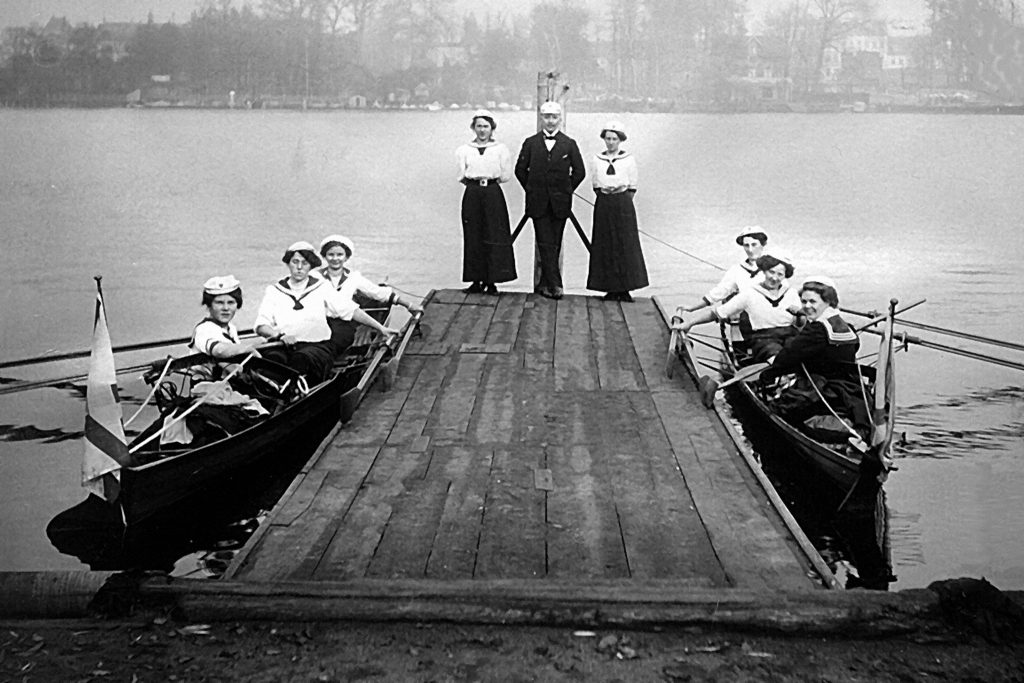
Damen des Berliner Rudervereins „Frigga“ am Steg des Stralauer Bootshauses, nach 1913
Märkischer Ruderverein e.V.
-
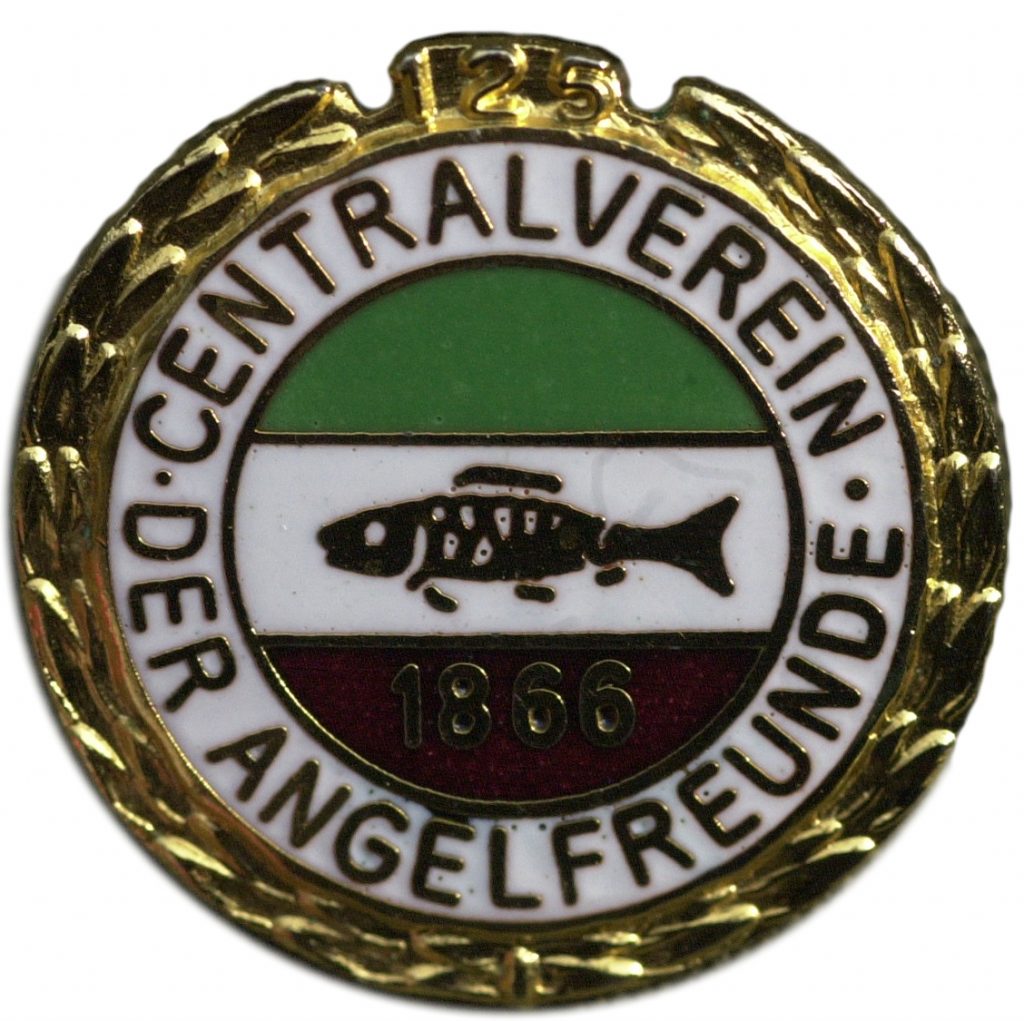
emblem1
-
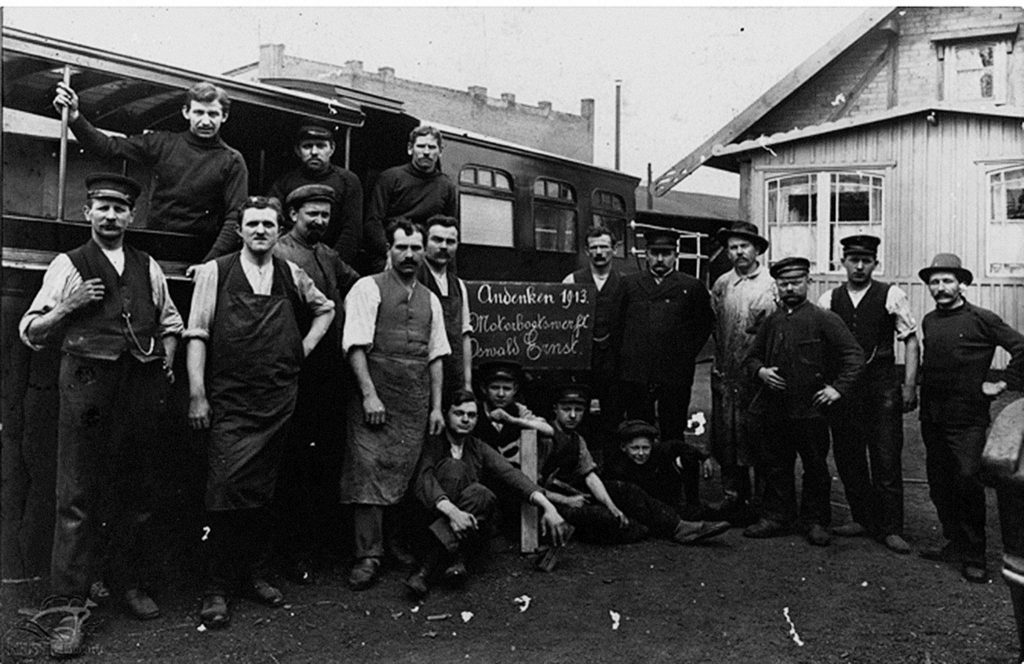
Belegschaft der Werft von Oswald Ernst, 1913
Privatbesitz
-
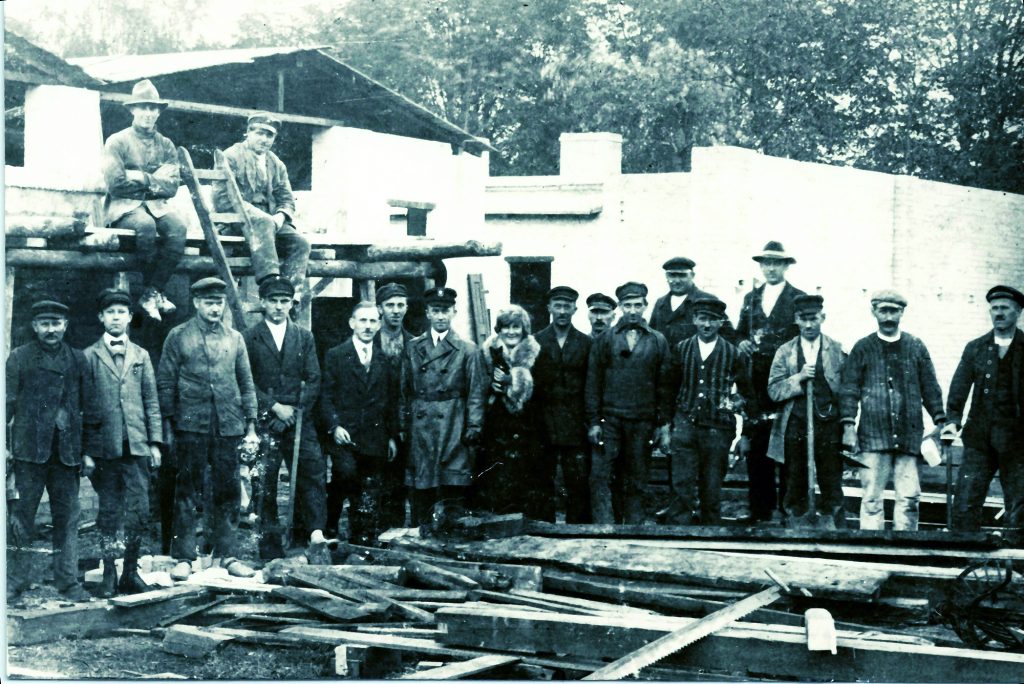
Belegschaft der Hansa-Werft, Herbst 1925
Privatbesitz
-
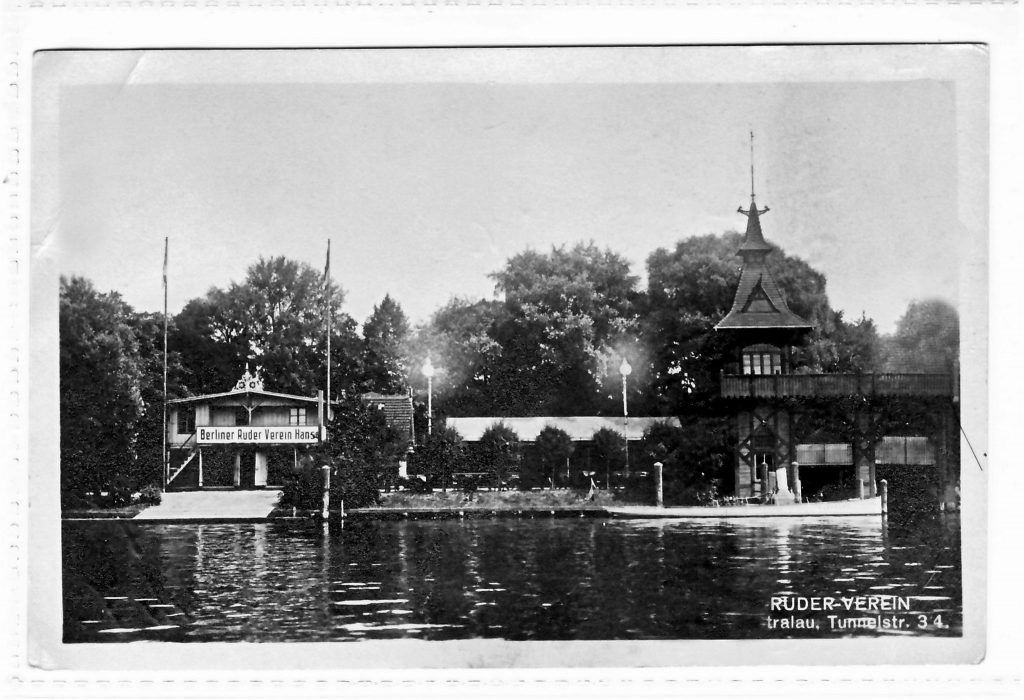
Bootshaus des Rudervereins Hansa, um 1937
Postkarte Archiv FHXB Museum, Postkartensammlung